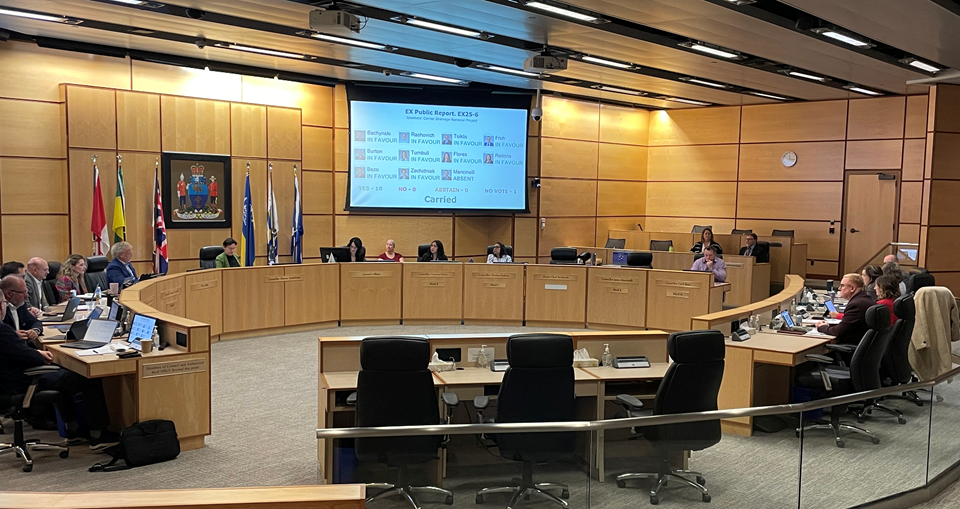REGINA - Affordability has been a key point for many councillors, and that took centre stage on Wednesday.
During the executive committee meeting, councillors discussed the revaluation update & tax policy.
Every four years, provincial legislation requires all municipalities in Saskatchewan, including Regina, to revaluate properties.
From these property value changes, approximately 50 percent of single-family residential properties saw an increase, estimated to be, on average, over $42,000 more from 2021.
This would have meant the average single-family residential property owner who saw an increase would pay $260 more for taxes in 2025.
The first option, which city administration recommended, was to phase in property tax changes for non-residential properties over three years, excluding residential properties (single-family, condominium, multi-residential)
Seeing this as an issue, Ward 9 Coun. Jason Mancinelli asked to put option 2 on the floor.
"I think these changes are insurmountable for some," he said.
Option 2 of the motion would increase or decrease a property’s value by 50 per cent in 2025 before fully implementing the changes in 2026.
Since residents already received their property value for 2025, city administration explained to those who saw a decrease would pay more from July to Dec. because the decreases won’t fully phase in until 2026.
Overall, 51 per cent of single-family properties saw a decrease in their value, averaging $14,646.
City administration noted those decreases came from marginalized communities, which include North Central and Heritage.
Some councillors took issue with this, noting people can’t afford to pay more taxes.
"These are folks who cannot afford increases for their payments to the city," said Ward 8 Coun. Shanon Zachidniak.
If the city were to phase in taxes, the average homeowner who saw decreases would lose out on saving around $60 for their taxes in 2025.
Implementing phasing in taxes for all property owners would also include over 78,000 residential properties on top of non-residential ones.
Daren Anderson, chief financial officer, noted this would strain the city’s resources.
He also mentioned it would be harder for the city to look into reducing expenditures of at least $1.55 million to find workers to support the internal auditor.
With all this in mind, the executive committee voted 6-4 against option 2, with Dan Rashovich (Ward 1), George Tsiklis (Ward 2), David Froh (Ward 3), Victoria Flores (Ward 6), Shobna Radons (Ward 7), and Zachidniak all opposed to the option.
Froh noted the complexities of revalving properties and how voting on phasing in taxes would have confused many residents.
"It would be very hard to balance the fact that not only would people's taxes go down much slower, but for a period of time they would pay more."
The executive committee passed option 1 by a vote of 8-2.
"I think we saw it fit to move [this option] forward to make sure we are good stewards of public dollars," said Froh.
The policy will be finalized at the April 9th city council meeting.




